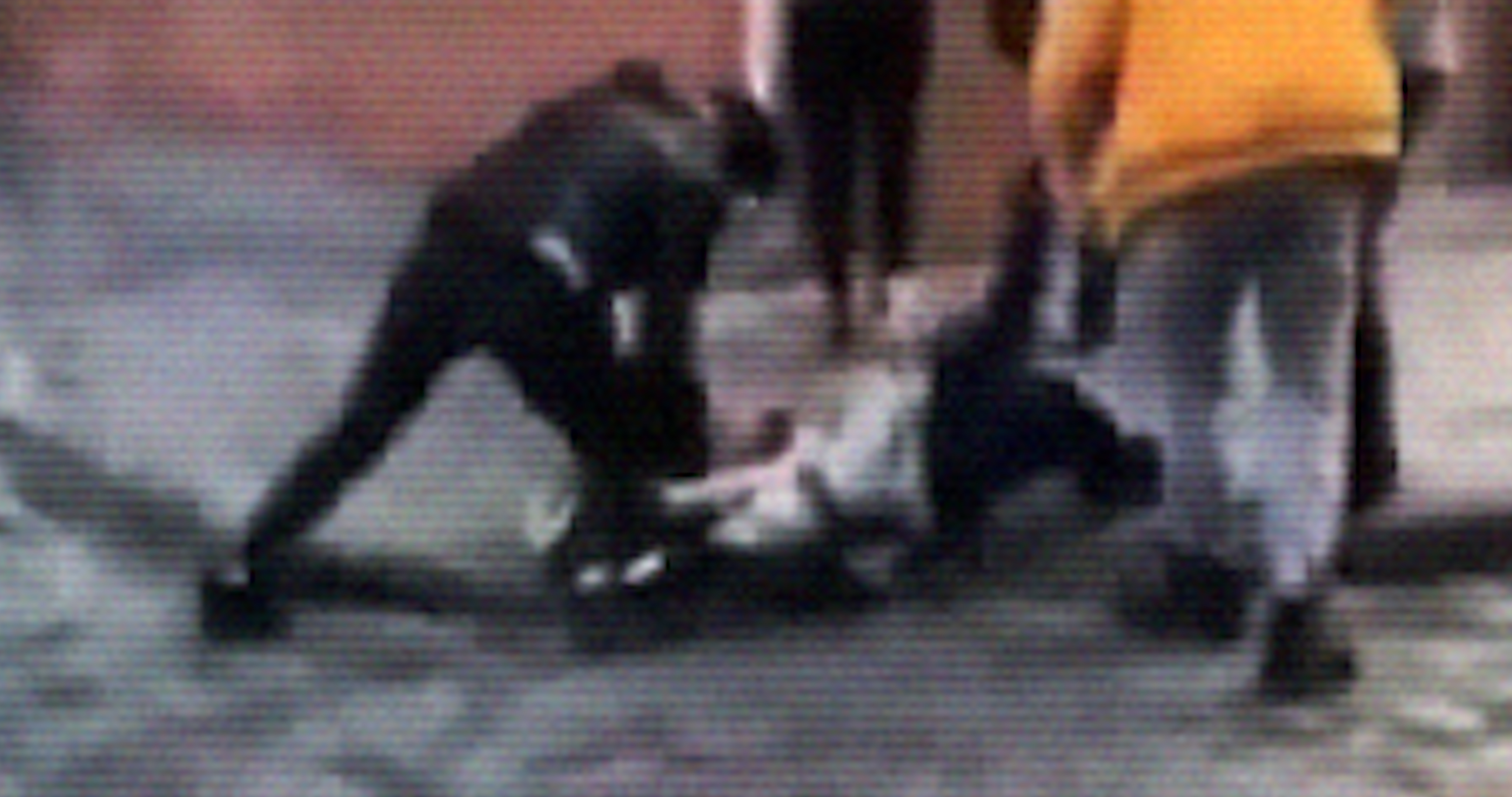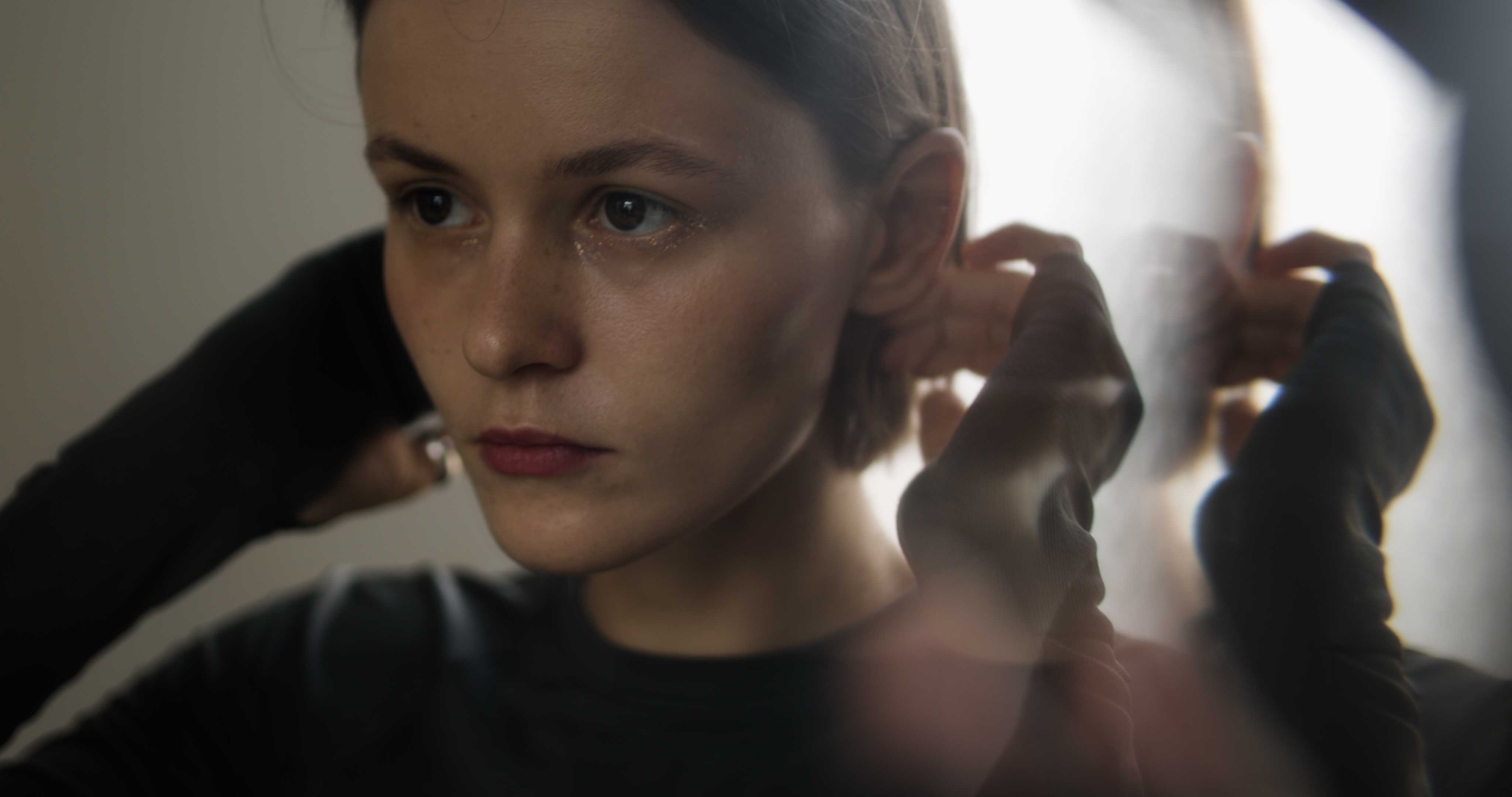The Longer You Bleed, 2025
(Digital, 73’)
Trailer: www.mubi.com/the-longer-you-bleed
Awards: FIPRESCI Award at Beyond Borders IFF & Jury Distinction Award at Szczecin FF.
Nominations: Supreme Jury Prize & Best Documentary at MDFF.
World Premiere: April 29th, 2025, Canadian International Documentary Festival, Hot Docs.
Australian Premiere: July 20th, 2025, Melbourne Documentary Film Festival.
European Premiere: August 8th, 2025, Lemosos International Film Festival.
Greek Premiere: August 29th, 2025, Kastellorizo International Documentary Festival.
Ukrainian Premiere: October 3rd, 2025, Odesa International Film Festival.
Polish Premiere: Szczecin Film Festival.
US Premiere: TBA
Hungarian Premiere: Verzio International Human Rights Documentary Film Festival.
Central Asian Premiere: TBA
German Premiere: TBA
UK Premiere: TBA
Selected for the Institute of Documentary Film’s East Silver Market in Prague, 2025.
Selected for the DokLeipzig’s Market in Leipzig, 2025.
The Longer You Bleed (2025) explores how war becomes spectacle in the age of endless scrolling. Following a group of young Ukrainians as they watch their country’s destruction unfold online, the film blends vérité intimacy with experimental absurdity to reveal how social media is reshaping our relationship to trauma, detachment, and the limits of empathy.
This personal documentary follows displaced Ukrainians in Berlin contending with the traumatic absurdity of watching their homeland burn, in real-time, through pixels on Instagram.
Shot over a year, the camera follows the director’s partner and her friends who—far from the war but still deeply entangled in its emotional fallout—navigate their new reality amidst the daily storm of traumatic war imagery online.
The documentary blends observational storytelling with experimental audiovisual sequences to map out the unsettling arc of compassion fatigue caused by the normalisation of this disturbing reality. As the characters contend with their growing detachment from the horrors of war, absurdist humour emerges as a coping mechanism; a lens the film appropriates to critique post-industrial society as a space for processing trauma. The documentary examines the alarming shift in how we as a society are engaging with images of war, and how they, in turn, are engaging with us. Through its unique blend of intimacy and abstraction, The Longer You Bleed offers a sobering meditation on the emotional costs of living in a world oversaturated with information.
Director’s Statement— “The Longer You Bleed depicts an experience I have not struggled with first-hand, centred around a country I am not from. And yet it is the most personal project I have ever been a part of. It began when I noticed I was on a border between two worlds. On the one side, I saw my Ukrainian girlfriend and her friends become tragically accustomed to the uncanny experience of having images of a genocide in their homeland be zapped to a device in their pockets every day. On the other side of the border, I saw a world of people with no connection to war, who had no idea what this new age of algorithms and images means for the psyche of a displaced person. I searched for a channel between these two worlds; one which was sharing the dark reality of the former with the latter. But I could not find it. This is the origin of our film. To create this channel.
My partner, Liuba, is both a character and a producer of this project. Together, we investigated her world (that of a displaced Ukrainian in today’s society) in order to develop ways to faithfully represent its emotional reality. It quickly became clear that a traditional approach to form was far too one-dimensional to depict such a complex reality. So I developed an experiential language which could authentically represent this jarring, layered experience of life. Seeing one thing but feeling another. Watching videos of heartwarming moments on social media but feeling only pain. Or seeing the painful realities of the violence in Ukraine but feeling nothing. Or even more confusing: feeling all of these things at once, including joy and laughter, and yet not knowing how to act in response. Simultaneously overwhelmed by everything beautiful and awful in fragmented moments of confusion. Life in the world of war and memes. This emerged as the necessary audio-visual motif.
Liuba and I’s relationship is uncomfortably intertwined with this brutal war. In April 2022, while I was working for a magazine in Berlin, I was interviewing displaced Ukrainians who’d escaped the full-scale invasion. She was one of them. I still have the interview recording on my phone of our first-ever conversation. A bizarre but cherished relic. We have since made several trips to Ukraine together during the war, some of which are represented in this film. Now we are having a child together.
I have hopes that one day our shared relationship with Ukraine will not be defined by this invasion. That the war will instead take its place as a portion of history, rather than a tragedy of today. I have hopes that in this future, our daughter can safely travel to her Mother’s homeland without needing to ensure she has the correct iPhone app installed to guide her to the nearest bomb shelter when the sirens begin. But we are not there yet. So whilst this war still plagues our days, we must highlight the unhighlighted struggles in its wake, and examining this element of human nature which breeds apathy towards tragedy, feels like as good a cause as any.”
Written & Directed by Ewan Waddell
Producer — Liubov Dyvak, Ewan Waddell
Cinematography — Ewan Waddell
Research — Lars Holgate, Uma Chaghaghi, Liubov Dyvak
Editor — Ewan Waddell
Translation — Liubov Dyvak
Original Score, Vocals, Production, Sound Design & Audio Supervision
—
Maria Kebuladze
Audio Mix & Additional Sound Design
—
Alexander Dähling (Crux Production)
Piano pieces composed and recorded by Ostap Kukhar
With ambient tracks produced by Yuriy Bulichev (Monotonne)
Produced by Runescape Gallery
Impact Producers
—
Jenny Jo Stokka, Alfredo La Corte
Co-produced by ASAP Production
Produced in association with Cota Mil Producciones
This film was made possible by the strength and resilience of the Ukrainian people.
With thanks to:
Yarik Yanchuk,
Valeria Schiller,
Lesia Khomenko,
Ksenia Demianovska,
Natalia Lushnikova,
Mariya Polyarush,
Julia Kafizova, Aly Ivanova,
Maryna Dovhanych,
Herman Severyn.




